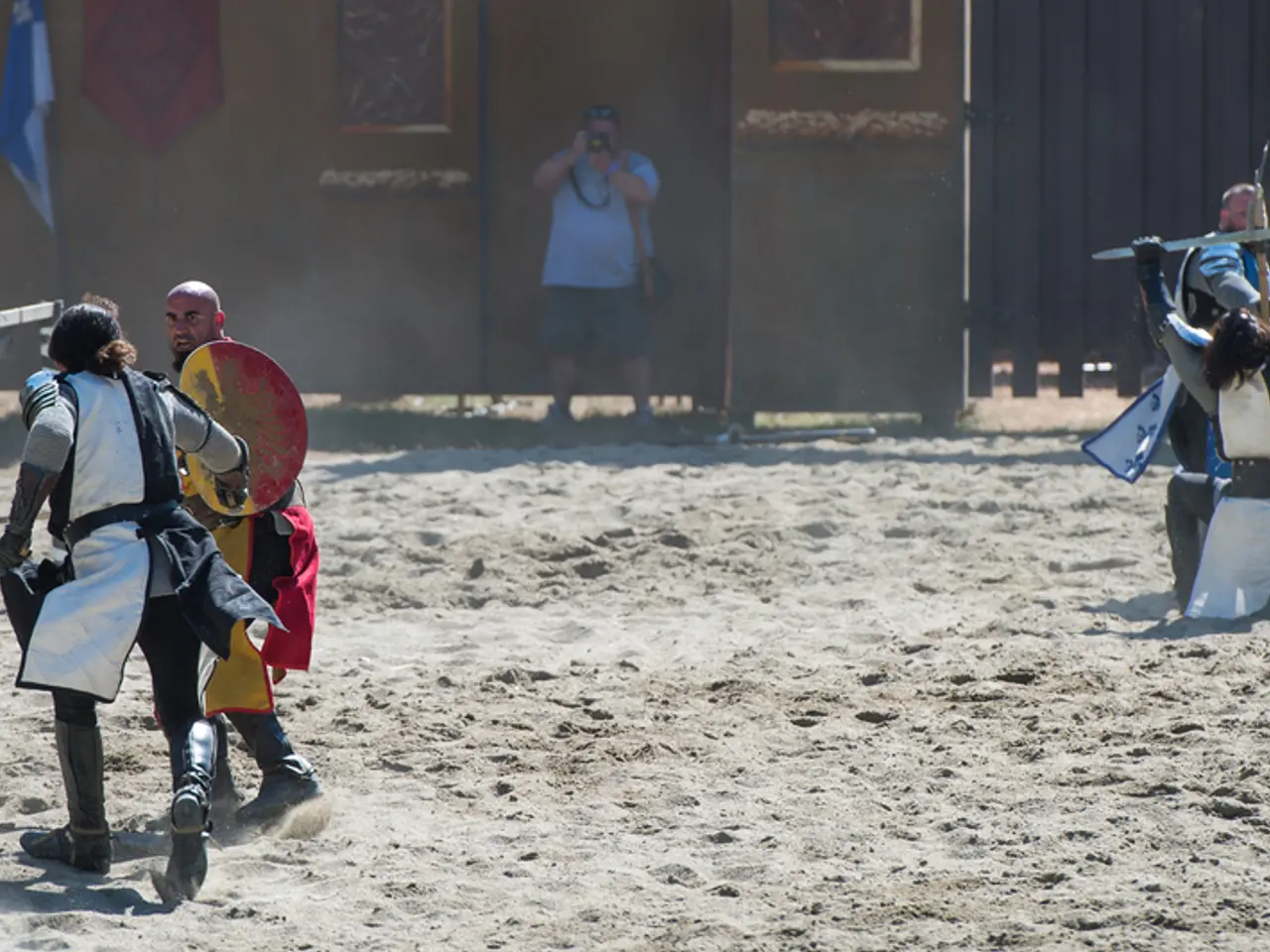Israeli military forces fatally shoot five individuals in Lebanon during a visit by an American diplomat to Beirut, advocating for the disarmament of Hezbollah.
In the wake of a recent truce, tensions remain high along the Lebanon-Israel border as both sides grapple with the terms of the agreement and the potential for disarmament.
The Israeli army is required to withdraw from all occupied positions in southern Lebanon and halt violations of Lebanese airspace, as stipulated by the truce. However, daily air strikes by Israel have resulted in over 300 deaths since November, according to reports.
The targeted compounds, which were used by Hezbollah for training and storing weapons, have been subject to these continued attacks. Despite the agreement, the Israeli army conducted air strikes in eastern Lebanon as recently as Monday, resulting in several fatalities and injuries.
On the Lebanese side, President Joseph Aoun has called for the US to pressure Israel into withdrawing from occupied territory in the south, allowing the Lebanese army to complete its deployment at the border. The Lebanese government has entrusted the army with drafting a road map to place all weapons under state control, including Hezbollah's.
However, Hezbollah has been resistant to any plans for disarmament, rejecting all such proposals. The group has stated that it will not discuss disarmament until Israel withdraws from Lebanese territory, stops its military actions, and releases detainees.
The committee overseeing the ceasefire between Lebanon and Israel, which features representatives from the Lebanese and Israeli armies, France, Unifil, and the US, met in Ras Naqoura in Lebanon's far south. US envoy Morgan Ortagus and Admiral Brad Cooper were among those in attendance, touring the border dividing the two countries on a Lebanese army helicopter after the meeting.
Lebanese authorities have asked the US to ensure the full implementation of the ceasefire mechanism, denouncing Israeli violations. The US has urged Lebanon to seize a "historic" opportunity to assert the state's monopoly on weapons, building on Hezbollah's weakened state after 13 months of conflict with Israel.
The Litani River serves as a boundary for Hezbollah's dismantlement of its infrastructure under the terms of the truce, located 30km from the border. The Israeli army expects the Lebanese army to launch the plan to disarm Hezbollah before it withdraws from the five strategic positions where its forces remain.
The Lebanese army presented a plan to rid Hezbollah of its weapons during a stormy cabinet session on Friday, but it remains to be seen whether the group will comply. The Lebanese army has been reluctant to set a deadline for implementing the plan, potentially welcoming Hezbollah's apparent acceptance.
US diplomat Tom Barrack is currently in Beirut as part of a push to disarm Hezbollah. The situation along the Lebanon-Israel border remains tense, with both sides seeking resolution while maintaining their respective positions.
Read also:
- ICE directed to enhance detention conditions following NYC immigrants' allegations of maltreatment
- Israeli finance minister issues warnings about potential annexation of West Bank territories
- United States faces rebuttal from South Africa over allegedly deceitful human rights report and assertions of land expropriation
- Accident at Rodalben Results in Injuries; Geoskop Area near Kusel Affected After Stormy Weather








